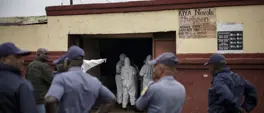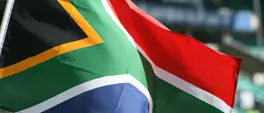YONELA DIKO: BELA Act - White appeasement must end for SA to thrive
Yonela Diko
19 December 2024 | 14:11Certain sections of white communities have never accepted that national reconciliation from our ugly past can only be anchored by fundamental social transformation, writes Yonela Diko.
In his opening speech at the 50th National Conference of the African National Congress (ANC) in December 1997, President Nelson Mandela commended the valiant efforts by government and various social partners for building a stable country in the three and a half years since the first democratic elections.
Government had maintained the unity and territorial integrity of the country and there had been no counter-offensive that sought to reverse the gains of liberation. All stakeholders, from the Constituent Assembly and constitutional courts to Chapter 9 institutions and others had discharged their work with great diligence.
Madiba was quick, however, to point out that part of the reason for the stability was because the programme of transformation was at its early stages. A time would come when transformation would begin to impact the apartheid social structure, which would produce great resistance from apartheid beneficiaries.
Madiba said the fundamental social transformation had "not yet tested the strength of the counter-offensive which would seek to maintain the privileges of the white minority".
There were already signs by 1997 that efforts were underway to resist any efforts at fundamental social transformation. Madiba acknowledged that, "whenever we have sought real progress through affirmative action, the spokespersons of the advantaged have not hesitated to cry foul, citing all manner of evil - such as racism, violation of the Constitution, nepotism, dictatorship, inducing a brain drain, and frightening the foreign investor".
Today, the Basic Education Law Amendment (BELA) Act is invoking such counteroffensive efforts. It is testing our commitment to a united country that gives equal access to education for all, against those who are hellbent on protecting white apartheid privileges in order to keep certain schools an exclusive enclave of the white minority.
This is unacceptable.
The battle around the BELA Act is about two clauses, clauses 4 and 5, which deal with admissions and language policies respectively.
The Act seeks to address access by all learners to quality education, which has been affected by School Governing Bodies (SGBs) in various schools who choose to adopt language and admissions policies as exclusionary tools to favour certain races over the others.
The BELA Act gives the provincial departments of education the power to ensure no schools use language and admissions policies as a tool to discriminate against other students who speak different languages.
The transformation of our education system is paramount because of the role education plays in nation building and economic development. It cannot be deferred any longer.
In a paper entitled "Opportunity Hoarding and Elite Reproduction: School Segregation in Post-Apartheid South Africa" written by Rob J Gruijters and others, using the 2021 Annual Schools Survey, the paper concludes that "White students almost exclusively attend former White schools, have little exposure to the low-income Black majority, and are vastly overrepresented in elite public and private schools".
It further warns that there is an elite-capture of the best schools in the country, which only serves to reproduce race and class privilege.
This is exactly the enduring and unyielding history that the BELA Act seeks to redress, which robs some of our most talented students by locking them outside high performing schools through language and admissions policy discrimination.
It is curious that this BELA Act has brought rough alignment to both liberals and right wingers in some pseudo racial harmony under the guise of preserving languages, an apparently common occurrence when things reach a racial tipping point.
Such a point can make even the most progressive white people uncomfortable. This is when, for example, too many black people move into schools or neighbourhoods. We love black people and we will fight for their rights, but do they have to move to our schools and neighbourhoods. Gumede's son is ok, Sexwale's too, even Zuma's kids, but those poor kids on a scholarship, don't leave that door wide open.
Certain sections of white communities have never accepted that national reconciliation from our ugly past can only be anchored by fundamental social transformation. To these communities, reconciliation meant continuing to enjoy their unjustified apartheid privileges, this time not by force but by the acquiescence of the black majority.
Unity of this country then becomes the burden of the black majority. That is a grave mistake, and a ticking timebomb.
Yonela Diko is the former spokesperson for the Minister of Human Settlements, Water and Sanitation.

















